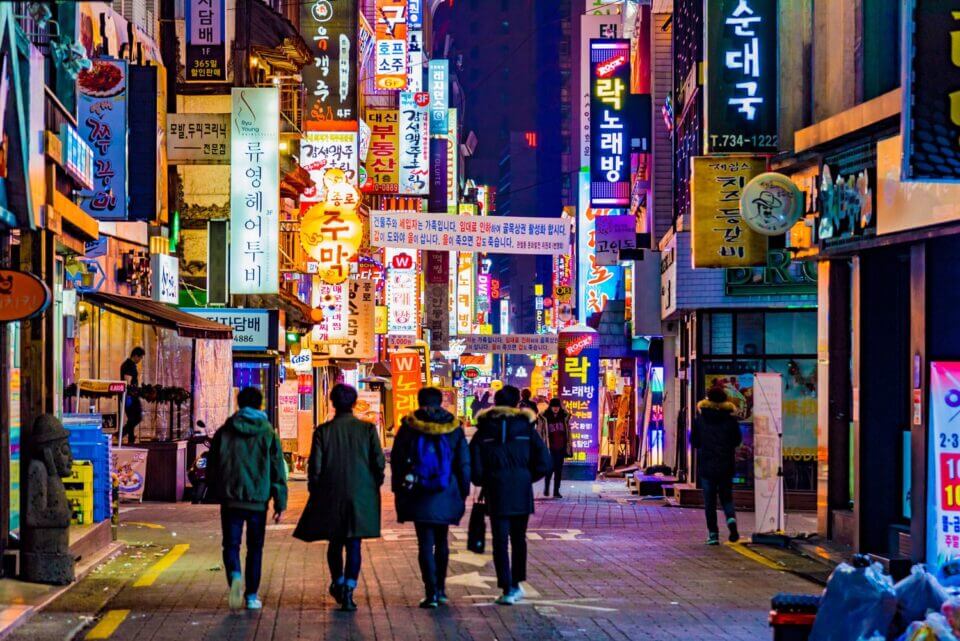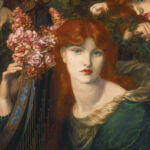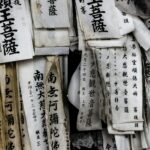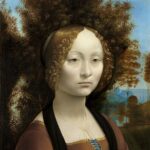
“Saying that people need to know the objective truth about what goes on Up There, the objective truth about evil places fueled by imported wine and blank consciences.”
Mister Park
Early April. Smogless. The sky tall. The world fresh. A warm day.
He approached me in the park as I skipped rope. Hard, fast, and parallel. He gestured, smiling. I halted my arms, my wrists, my motion, stopped training. The world was silent without the terminant click of rubber on concrete.
His army fatigues hung limp off his shoulders. The sleeves flaccid—too long, extending past his cuffs, encroaching upon his palms. The pants bagged around the hips, around the knees, at the ankles. The suit wore him. A patch on the jacket’s right sleeve read “Mountain,” the word running horizontal under a sharp, bottomless triangle. The word and the triangle white, the patch’s background black. Sewn to his fatigues. Sagging, baggy cargo pants, pockets distended. A fanny pack clipped and stowed beneath the unbuttoned front of the too-large jacket.
The man’s eyelids drooped low over his irises, his eyes dark half-moons cupped by bloodshot, milky white. Skin olivine, husky, wrinkled and riveted as a sacred scroll. His fingers thick and hairless, his fingernails yellow, ridged, rogue crescents. He stood a close distance from me, his back against the cool metal chassis of an exercise machine, a shoulder wheel left unused.
I holding a jumprope, calm.
He said that he was tortured. Had been tortured, he said, in a voice louder than a whisper, soft enough to go undetected on the breeze. By two North Korean spies. Spies who broke his back. He was in the hospital for six months, he said, and still made regular visits to the same doctor. He spends his time in the park now, he said, because of the fresh air. The air, and the scent of the palm trees.
Palm trees meaning pine trees. I did not correct him. I held the jump rope, standing tall, eyes on his. He asked me if I was new to the country. I shrugged once, said I was, once. He told me where to buy rice, where to find the best deals at the local marts and shops, so I could cook for myself. Said I could use his family name to buy a cell phone plan— otherwise, he said, it’s hard for foreigners. Hard and not cheap. Expensive. They make it so.
Showed me a photo of an anti-protest poster, a photo on a phone he pulled from an inner breast pocket, a phone procured after five long seconds’ blind rummaging.
His English mottled, cracked, broken. He acknowledged that the time it now takes him to go from A to B is not as it could be, not as it should have been. Not as the grackle flies, he said, coughing. His eyes holding mine. Said he has two daughters who live in Los Angeles, Los Angeles with their families. The park empty but for old women, milling in spandex and shorts and hats, stretching and walking and sitting and talking, talking into their phones. The playground’s tube slide reading STOP, the words etched dark and deep into the plastic above the chute’s opening.
The man old, his eyes soft. He loves the American President. So he said. Loves him—for his words, for his promises. The leader who would protect us. Said, the man, that the Korean President, she of five percent approval, should stay on. Showed me a photo of an anti-protest poster, a photo on a phone he pulled from an inner breast pocket, a phone procured after five long seconds’ blind rummaging.
Time spent. I blinked. He laughed, nodded. Said over thirty-four hundred North Korean spies call Seoul home. Home. Dangerous, he said, for a former army man. A danger he knows; a danger he combats. He no longer talks to people, he said. He keeps his mouth shut. Miming a zipper, his fingers running across his chapped lips.
The man’s eyes welling. A windy-ish day. Soft spring, warm spring; a warmth not yet spread. A middle-aged woman sitting splay-legged under the park’s gazebo, on the wooden platform’s edge, wearing a sweatshirt with PARIS, phonetic, across its front. Talking into her cell phone, sitting in the place the man had vacated when he first rose and approached, uniform billowing, a mirror to the day. Workers roto-tilling and watering the playground’s sandy base, spreading the sand evenly across the ground, around the fixtures: jungle gym, monkey bars, slide.
Get an iPhone, the man said. He again showed me his phone. A Samsung, new. He procured his wallet from an inner pocket, showed me the business card of a former three-star general, a business card he carries at all hours, whenever he wears his jacket: Cho Jeon-ho, retired, who now teaches at Yonsei University. Cho retired, the man said, because Cho had to retire. Because of the danger. A great man, spent.
The man said he himself left the service of the Yonsei Brigade after a long career, left it some decades back. That he had a U.S. friend named Kilpatrick, from his army days. That Kilpatrick left Korea many years ago, after his tour had been served. That Kilpatrick had returned to his family. That Kilpatrick is dead now.
The man scanning through his Samsung. He showed me an app that runs translations of the Hymnal and the King James Version, in English and Hangul, alongside each other. Page by page he scrolled, as the trees danced.
An old man’s eyes bear more tears. He gestured me closer, put his heavy hand on my shoulder. His fingers distended. His eyes watery—the wind. He led me in prayer, the man—a prayer he knows, a prayer he loves. A prayer he whispered to me in two tongues. He directed me again to follow. His words clear.
I, looking on. Mouthing, miming, waiting.
“You are now saved,” he said. “Now saved by Christ. Always remember Jesus. Always remember Jesus. Always remember.”
He said he was an army chaplain, that he performed services for the U.S. Army. He gets excited, he said, shivering, when he recalls their AMEN. AMEN, he said, imitating a brisk, brusque murmur.
I, holding to my silence, my stillness. I, bitten now by a mosquito, a pest that had been hovering. I, smacking that mosquito, killing it mid-bite. The pest leaving behind a smear of siphoned blood.
I will teach you, the man said, pointing me through verses now in his native language alone. He said to thank Jesus, Amen. Said one must—I must—“propitiate the soul as myself.” His words. Checking his translation, nodding. Then Jude 1:24. His favorite verse. He mentioned Benedict, mentioned Peter: the first pope, the crusader, Petra. Asked if I ever have dreams at night. Called dreams ecstasies. Said he has them often, ecstasies. Said he comes to the park for the fresh air.
He said the South is a dangerous place now, today. That the country will not end up reunited like East and South Germany. He said the U.S. Chief is a good man—laughing, the man, ecstatic. That the good man will bomb all evil to the North and in doing so help the South—the Rock, the ROK Army—more than the joint training exercises and radar systems and missile programs and trade agreements already have. Pointing to the Mideast desert campaigns, the man, as evidence of the Savior’s kindness. Saying that people need to know the objective truth about what goes on Up There, the objective truth about evil places fueled by imported wine and blank consciences. The objective truth about things. That otherwise, in absence of truth, false truth invades. That false truth speaks in sweet tones, with perfumed breath to boot. And that everyone but God wears a mask.
The man turned to leave. He asked if I’d be at the park again. If I’d return, to exercise. Said he himself will return. That he’s often at the park, for the fresh air. I, nodding, unfurling the jump rope. He, sidling, thumping, limping toward the road at the park’s entrance. The road to our east, running north-south. The road congested, snarled with traffic.
The park empty now, but for me. The old soldier across the road, fading beyond the cars. The sky tall. Quiet, all, but for the thump on the breeze.
Storms
So he walked on in search of pleasure. It was a wet night—raining. Puddled were the streets of Seoul. He was ankle-deep in it.
Taxi drivers sheltered under the concrete awning of the national bank, the smoke from their cigarettes fogging the air before the bank’s glass doors and wafting forward and up before dampening and diffusing in the rain. The bank’s neon lettering flared lurid overhead, blue as dawn. Old women waddled and hopped through the muck, wheeling their soaked belongings behind them, barely keeping pace with the guano-white pigeons who too waddled up the sidewalk, oblivious and hindered. Both wetter than puddles.
The rain pelted the hood of his half-waterproof coat, dripped from the hood’s pucker-bunched brim onto the screen of his phone, which he could not shield no matter how he canopied his off-hand. He saw not his reflection. The wind was blowing buckets, and changed course meretriciously. Even the money in his pocket was wet. It stuck together, the money, layer upon layer, dirty paper molecularly magnetized to further dirty papers, like saved strata of dead skin. The wad made his pocket bulge.
He would have looked up to curse the sky, had he not feared soaking his face. It was the only part of him yet dry, save one other place, and he planned on keeping it that way.
His feet led him down a littered, lifeless alley. Lifeless, but for an idling orange cab, its driver safe, hermetic, desiccated, smoking in the driver’s seat. The window was cracked, though the barometry of things held the blown smoke at bay, forced it back heavy in its tracks as it attempted to escape into the capricious night. Each successive exhalation, he thought, must be further dehydrating the cab’s interior. Waves on a beach; arid cabin, arid driver. His pulse hammered at his temples.
Seoul at rest, inside. He’d seen them through the windows: sitting together in second- and sixth-floor cafés and well-lit restaurants, laughing, pellucid umbrellas dangling from the edges of their tables, residue pooling on floors. They feared it, in that they did not speak of it. They loved it, in that it gave them an excuse to crowd together and giggle and dream about anything but the wetness awaiting them outside.
So he walked to the subway station, shook himself like a sea dog and squeezed in through the sliding doors.
Halfway down the alley. Two men, monkey-suited, emerged from a jet-tinted doorway, outswinging. A glimpse inside before the door sealed shut behind them—the red-lit staircase, leading down. The door’s glass tinted, impervious. The men stood under the building’s canvas awning. One pulled out two cigarettes. The other took one, sans procurement, between his fingers, lit them both. The men smoked, necks rigid, jaws forward.
He watched them until the shorter, beef-fingered one saw him, met his eye. He looked down, worried the rain might gust onto his face and drizzle down his cheek, make it look like he was crying. He quickened his pace, hurrying toward the alley’s terminus, where it met again with the main drag. Through the rain he heard the men murmuring in Korean about three-for-ones and making your one shot count. Then he turned the corner.
Traffic was heavy. 10 p.m. in the capital takes its prisoners. Mothers and sons and daughters, couples, more old ladies with their wheeled possessions, occasionally leaping from cabs or vans, shrieking in glee or terror as the deluge doused them before they could put up their translucent plastic umbrellas and be appeased.
He thought of taking a cab home. But home was miles north, separated from him by a polluted, rising river, among other things. So he walked to the subway station, shook himself like a sea dog and squeezed in through the sliding doors.
The route took them outside, passed over the pulsing river atop a rusty-tracked, trembling bridge. The windows were tinted, but he could see out. He beheld the turbid water below; the cityscape splayed bare behind and before him, dark but for the lights. The approaching skyline low-hanging, gauzed gray by three-fronted clouds.
He could see out, yes. Until they bore back underground. Then all he saw was his own fitful reflection. His and others’. Women looking at phones. Men glancing at women.
He exited at his stop, rode the bus the rest of the way home. Once inside he hung his wet clothes from wall hooks, flopped onto his mattress, appeased himself. He fell asleep with a headache, the lights still on, windows closed against the storm.
Patrick Burr is a writer living in Latvia. He holds an MFA from the University of Washington, where he received the program’s Nelson Bentley Prize.











Great article